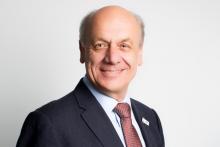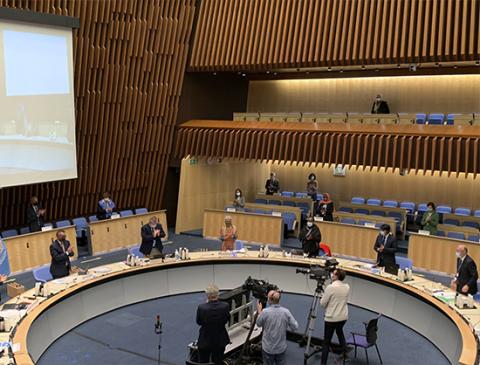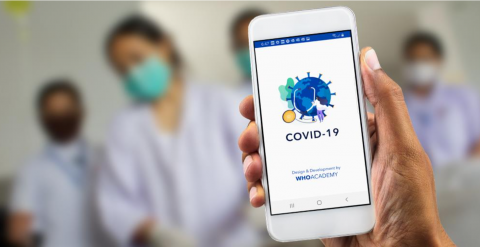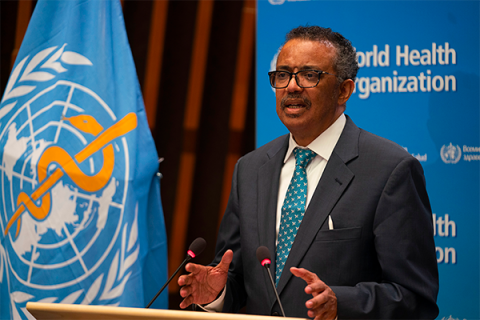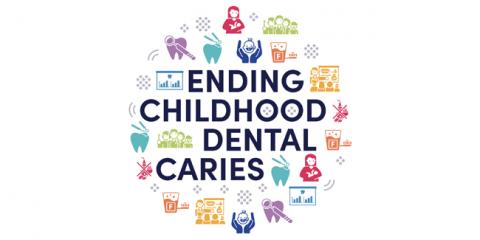Sri Lanka affirms oral health as a key element of universal health coverage at WHO EB 146
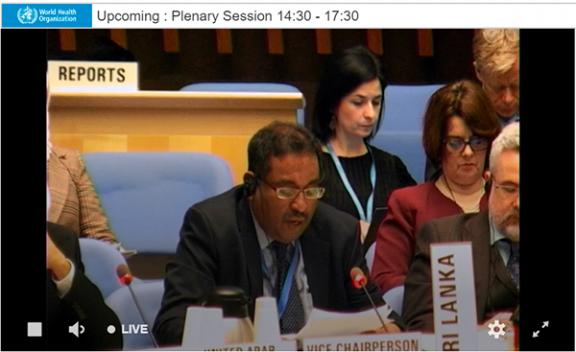
The World Health Organization Executive Board (WHO EB) is holding its 146th session in Geneva, Switzerland, from 3 to 8 February to review reports and resolutions ahead of the World Health Assembly in May. As a non-state actor in official relations with the World Health Organization (WHO), FDI ensures oral health is included when ministers debate global health priorities, action plans and targets.
Sri Lanka affirms oral health as a key element of universal health coverage at WHO EB 146
On the third morning of the WHO EB, United Nations Member State Sri Lanka gave a joint statement, supported by 17 additional Member States, affirming their united commitment to oral health. Sri Lanka read the statement under Agenda Item 7.1: Universal health coverage: moving together to build a healthier world.
FDI welcomes this extraordinary statement from Sri Lanka and the 17 supporting countries and fully supports their recommendations on oral health. This is a heartening development for the oral health community and a wonderful way to begin celebrating our 120-year anniversary in 2020
Please see below for a full transcript of Sri Lanka’s statement:
Agenda Item 7.1 Universal health coverage: moving together to build a healthier world
This joint statement is presented also on behalf of Burkina Faso, Croatia, Denmark, Finland, France, Greece, Hungary, Israel, Japan, Latvia, Malta, The Netherlands, Portugal, Romania, Slovakia, Sweden and Tonga.
We would like to express our appreciation for the fact that oral health has been included into the Political Declaration on Universal Health Coverage as adopted in last year’s General Assembly.
Oral health has been widely disregarded over the past decades in most of our deliberations. Very surprisingly so, as mouth diseases are by far the most prevalent non-communicable diseases.
Half of the world population suffers from oral diseases, making up for 3.5 billion people. Caries and gum diseases are the most common. Oral cancer is also widespread across many regions in the world.
This is even the more regrettable as oral conditions are mostly preventable. Apart from poor oral hygiene, many of them share the same risk factors common to all other non-communicable diseases–high sugar intake, tobacco use and alcohol consumption.
Other lesser known oral diseases also have a significant impact, for example noma in Africa and Asia, leading to facial mutilations and very often death.
Apart from pain and social exclusion, oral diseases account for a large economic burden. This involves direct costs related to treatment as well as indirect costs caused by absenteeism at the workplace and at school.
Poor oral health is a matter of concern for all of us. The mouth is literally the gateway to good general health. There is solid evidence that poor oral health contributes to diabetes, cardiovascular diseases, cancer and premature birth. Prevention of oral diseases is fundamental for avoiding tooth loss and thus proper food intake. Good oral health is important basis for healthy ageing and Quality of Life.
Mouth diseases are a marker of social and health inequalities, affecting people across cultures, religions, gender, age groups and income. The impact of oral conditions is similar to other noncommunicable diseases with a higher burden for disadvantaged, vulnerable or marginalized populations.
Access to essential oral health care is pivotal for general health and wellbeing for all of us where no one should be left behind. This starts with nursery and school based programmes for health education on oral hygiene and nutrition.
Furthermore, we must deal with the environmental impact of dental care. This includes the use of mercury-containing dental amalgam which is now been phased down in the context of the Minamata Convention, but also the extensive use of plastics and other non-recyclable materials in dental care.
As said the Political Declaration on Universal Health Coverage and the inclusion of oral health marks an important step but now has to be translated into actions with WHO, member states and other organizational institutions.
We are well aware that promising initiatives have already been taken in various WHO regions. We are especially happy with the work started by the Secretariat on the WHO Global Oral Health Report to be launched later this year.
However, this is not enough. There is an urgent need for more international political commitment to oral health and its integration into primary health care. Oral health care should not be an isolated part within the healthcare domain. It should be clearly embedded into the NCD and UHC agendas.
Therefore, a global strategy on oral health is very much needed. In this perspective, we will later this year make a proposal on adding oral health on the agenda of the 148th EB. This agenda item on oral health should pave the way to a resolution that will include recommendations for the development of:
- a Global Strategy on tackling oral diseases as part of NCD and UHC agenda’s and other health SDG targets;
- a Global Oral Health Action Plan including a global accountability and monitoring framework with clear targets to be achieved by 2030;
- WHO technical guidance on environmentally friendly and non-invasive dentistry integrated into general health care and patient-centred services; and, finally,
- the development of Best Buys on Oral Health.
Such a roadmap could contribute to better oral health the end of the 2030 Agenda.
I Thank You Chair.
What’s next?
Bolstered by this support of oral health by United Nations Member States, FDI will continue to push for oral health to be integrated within the global health and development agenda, so that even more governments understand that you can’t be healthy without good oral health. FDI is also working on a Vision 2030 roadmap to help ensure oral health for all. We look forward to sharing this with Member States later this year.

